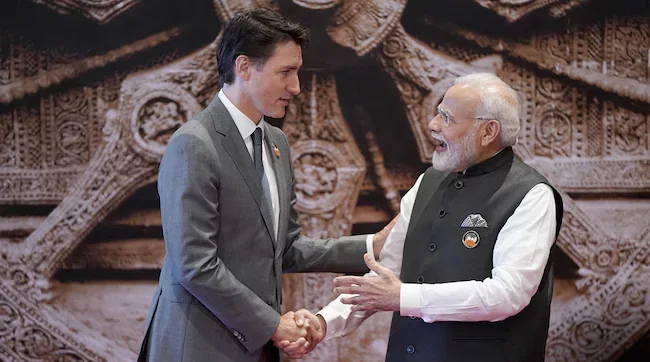New Delhi: India today rejected as “absurd and motivated” Canadian Prime Minister Justin Trudeau’s charge that it played a role in the June killing of a Khalistani terrorist. Canada has also expelled a senior Indian diplomat over the issue.
Here are the top 10 points in this big story:
- Prime Minister Justin Trudeau said his government had “credible allegations” linking Hardeep Singh Nijjar’s killing with the “agents of the Government of India”.
- “Any involvement of a foreign government in the killing of a Canadian citizen on Canadian soil is an unacceptable violation of our sovereignty. It is contrary to the fundamental rules by which free, open, and democratic societies conduct themselves,” he told an emergency session of the parliament today.
- The Indian government “completely rejected” the Canadian PM’s allegations and said their political figures openly expressing sympathy for “such elements” remains a matter of deep concern.
- “Such unsubstantiated allegations seek to shift the focus from Khalistani terrorists and extremists, who have been provided shelter in Canada and continue to threaten India’s sovereignty and territorial integrity. The inaction of the Canadian Government on this matter has been a long-standing and continuing concern,” said a foreign ministry statement.
- The space given in Canada to a range of illegal activities including murders, human trafficking and organised crime is not new, the statement said, and urged Canada to take prompt action against all “anti-India elements” operating from there.
- Canada has not named the Indian diplomat it expelled, but Foreign Minister Melanie Jolie said the person was the head of the Research and Analysis Wing (RAW), India’s intelligence agency, in her country.
- Hardeep Singh Nijjar, who headed the Khalistani Tiger Force and the Canadian arm of Sikhs For Justice (SFJ), was shot dead by unknown attackers near a gurdwara in Surrey in June. Nijjar, who was from Punjab’s Jalandhar, moved to Canada in 1997. He was wanted in India for being the “mastermind” of the Khalistani Tiger Force, a designated terror group in India.
- Last July, the Indian anti-terror agency announced a cash reward of ₹ 10 lakh on Nijjar in connection with the murder of a Hindu priest in Jalandhar, Punjab. Nijjar was also accused in the 2007 bombing of a cinema in Punjab. The NIA is also probing the recent attacks on Indian diplomatic missions in Canada, UK and US.
- Canada has been among the favoured hubs of expat Sikhs where extremism has mushroomed over the last few years. The past few months saw multiple Khalistani activities in Canada, including protests outside the Indian Embassy and threat posters for Indian diplomats.
- The recent rise in diplomatic tensions saw Canada last week postponing a trade mission to India, which was planned for October. The development came days after PM Modi scolded Trudeau at the G20 summit in Delhi over rising secessionist activities and Khailstan-supporters attacking Indian diplomatic missions in Canada.







 Finance
Finance







